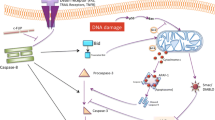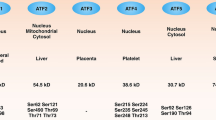Abstract
The target of rapamycin, TOR, maintains cell growth and proliferation under vivid environmental conditions by orchestrating wide array of growth-related process. In addition to environmental conditions, e.g., nutrient and stress, TOR also governs cellular response to varied intracellular cues including perturbed intracellular mRNA levels which may arise due to altered regulation of mRNA processing at splicing or turnover levels. The purpose of this study is to explore the role of TOR signalling in growth of cells with accumulated unprocessed RNA. Growth analysis of lea1∆ (splicing deficient) was carried out under varied conditions leading to nitrogen starvation. The expression of TORC1 and TORC2 marker genes was examined in this delete strain. Sensitivity of the lea1∆ towards oxidative agents was observed. Apoptosis was analyzed in caffeine-treated lea1∆ cells. The hypersensitivity of lea1∆ cells towards caffeine is outcome of highly perturbed TOR signalling. The growth defect is independent of PKC pathway. Cells with accumulated unprocessed RNA experience high oxidative stress that induces apoptosis. An inadequate TOR signalling in lea1∆ cells substantiates the effect of oxidative stress induced by accumulated RNA to the extent of inducing cell death via apoptosis.





Similar content being viewed by others
References
Adami A, García-Alvarez B, Arias-Palomo E et al (2007) Structure of TOR and its complex with KOG1. Mol Cell 27:509–516. https://doi.org/10.1016/j.molcel.2007.05.040
Albig AR, Decker CJ (2001) The target of rapamycin signaling pathway regulates mRNA turnover in the yeast Saccharomyces cerevisiae. Mol Biol Cell 12:3428–34383
Almeida B, Ohlmeier S, Almeida AJ et al (2009) Yeast protein expression profile during acetic acid-induced apoptosis indicates causal involvement of the TOR pathway. Proteomics 9:720–732. https://doi.org/10.1002/pmic.200700816
Beck T, Schmidt A, Hall MN (1999) Starvation induces vacuolar targeting and degradation of the tryptophan permease in yeast. J Cell Biol 146:1227–1238
Bergkessel M, Whitworth GB, Guthrie C (2011) Diverse environmental stresses elicit distinct responses at the level of pre-mRNA processing in yeast. RNA 17:1461–1478. https://doi.org/10.1261/rna.2754011
Bonawitz ND, Chatenay-Lapointe M, Pan Y, Shadel GS (2007) Reduced TOR signaling extends chronological life span via increased respiration and upregulation of mitochondrial gene expression. Cell Metab 5:265–277. https://doi.org/10.1016/j.cmet.2007.02.009
Cardenas ME, Cutler NS, Lorenz MC et al (1999) The TOR signaling cascade regulates gene expression in response to nutrients. Genes Dev 13:3271–3279. https://doi.org/10.1101/gad.13.24.3271
Caspary F, Séraphin B (1998) The yeast U2A’/U2B complex is required for pre-spliceosome formation. EMBO J 17:6348–6358. https://doi.org/10.1093/emboj/17.21.6348
Crespo JL, Powers T, Fowler B, Hall MN (2002) The TOR-controlled transcription activators GLN3, RTG1, and RTG3 are regulated in response to intracellular levels of glutamine. Proc Natl Acad Sci U S A 99:6784–6789. https://doi.org/10.1073/pnas.102687599
De Virgilio C, Loewith R (2006) The TOR signalling network from yeast to man. Int J Biochem Cell Biol 38:1476–1481. https://doi.org/10.1016/j.biocel.2006.02.013
Dreumont N, Séraphin B (2013) Rapid screening of yeast mutants with reporters identifies new splicing phenotypes. FEBS J 280:2712–2726. https://doi.org/10.1111/febs.12277
Fadri M, Daquinag A, Wang S et al (2005) The pleckstrin homology domain proteins Slm1 and Slm2 are required for actin cytoskeleton organization in yeast and bind phosphatidylinositol-4,5-bisphosphate and TORC2. Mol Biol Cell 16:1883–1900. https://doi.org/10.1091/mbc.E04-07-0564
Farrugia G, Balzan R (2012) Oxidative stress and programmed cell death in yeast. Front Oncol 2:64. https://doi.org/10.3389/fonc.2012.00064
Fukai T, Ushio-Fukai M (2011) Superoxide dismutases: role in redox signaling, vascular function, and diseases. Antioxid Redox Signal 15:1583–1606. https://doi.org/10.1089/ars.2011.3999
Gaubitz C, Oliveira T, Prouteau M et al (2015) Molecular basis of the rapamycin insensitivity of target of rapamycin complex 2. Mol Cell 58:977–988. https://doi.org/10.1016/j.molcel.2015.04.031
Gietz RD, Schiestl RH, Willems AR, Woods RA (1995) Studies on the transformation of intact yeast cells by the LiAc/SS-DNA/PEG procedure. Yeast 11:355–360. https://doi.org/10.1002/yea.320110408
He Y, Li D, Cook SL et al (2013) Mammalian target of rapamycin and Rictor control neutrophil chemotaxis by regulating Rac/Cdc42 activity and the actin cytoskeleton. Mol Biol Cell 24:3369–3380. https://doi.org/10.1091/mbc.E13-07-0405
Heintz C, Doktor TK, Lanjuin A et al (2016) Splicing factor 1 modulates dietary restriction and TORC1 pathway longevity in C. elegans. Nature 541:102–106. https://doi.org/10.1038/nature20789
Heitman J, Movva NR, Hall MN (1991a) Targets for cell cycle arrest by the immunosuppressant rapamycin in yeast. Science 253:905–909
Heitman J, Movva NR, Hiestand PC, Hall MN (1991b) FK 506-binding protein proline rotamase is a target for the immunosuppressive agent FK 506 in Saccharomyces cerevisiae. Proc Natl Acad Sci U S A 88:1948–1952
Inoki K, Ouyang H, Li Y, Guan K-L (2005) Signaling by target of rapamycin proteins in cell growth control. Microbiol Mol Biol Rev 69:79–100. https://doi.org/10.1128/MMBR.69.1.79-100.2005
Jacinto E, Loewith R, Schmidt A et al (2004) Mammalian TOR complex 2 controls the actin cytoskeleton and is rapamycin insensitive. Nat Cell Biol 6:1122–1128. https://doi.org/10.1038/ncb1183
Kamada Y, Fujioka Y, Suzuki NN et al (2005) Tor2 directly phosphorylates the AGC kinase Ypk2 to regulate actin polarization. Mol Cell Biol 25:7239–7248. https://doi.org/10.1128/MCB.25.16.7239-7248.2005
Kingsbury JM, Cardenas ME (2016) Vesicular trafficking systems impact TORC1-controlled transcriptional programs in Saccharomyces cerevisiae. G3(Bethesda) 6:641–652. https://doi.org/10.1534/g3.115.023911
Kuranda K, Leberre V, Sokol S et al (2006) Investigating the caffeine effects in the yeast Saccharomyces cerevisiae brings new insights into the connection between TOR, PKC and Ras/cAMP signalling pathways. Mol Microbiol 61:1147–1166. https://doi.org/10.1111/j.1365-2958.2006.05300.x
Lempiäinen H, Uotila A, Urban J et al (2009) Sfp1 interaction with TORC1 and Mrs6 reveals feedback regulation on TOR signaling. Mol Cell 33:704–716. https://doi.org/10.1016/j.molcel.2009.01.034
Liang Q, Li W, Zhou B (2008) Caspase-independent apoptosis in yeast. Biochim Biophys Acta Mol Cell Res 1783:1311–1319. https://doi.org/10.1016/j.bbamcr.2008.02.018
Loewith R, Hall MN (2011) Target of rapamycin (TOR) in nutrient signaling and growth control. Genetics 189:1177–1201. https://doi.org/10.1534/genetics.111.133363
Loewith R, Jacinto E, Wullschleger S et al (2002) Two TOR complexes, only one of which is rapamycin sensitive, have distinct roles in cell growth control. Mol Cell. https://doi.org/10.1016/S1097-2765(02)00636-6
Madeo F, Fröhlich E, Fröhlich KU (1997) A yeast mutant showing diagnostic markers of early and late apoptosis. J Cell Biol 139:729–734. https://doi.org/10.1083/jcb.139.3.729
Martin SG, Arkowitz RA (2014) Cell polarization in budding and fission yeasts. FEMS Microbiol Rev 38:228–253. https://doi.org/10.1111/1574-6976.12055
Mazzoni C, Falcone C (2011) mRNA stability and control of cell proliferation: figure 1. Biochem Soc Trans 39:1461–1465. https://doi.org/10.1042/BST0391461
Mazzoni C, Herker E, Palermo V et al (2005) Yeast caspase 1 links messenger RNA stability to apoptosis in yeast. EMBO Rep 6:1076–1081. https://doi.org/10.1038/sj.embor.7400514
Mazzoni C, Mancini P, Verdone L et al (2003) A truncated form of KlLsm4p and the absence of factors involved in mRNA decapping trigger apoptosis in yeast. Mol Biol Cell 14:721–729. https://doi.org/10.1091/mbc.E02-05-0258
Morita M, Gravel S-P, Hulea L et al (2015) mTOR coordinates protein synthesis, mitochondrial activity and proliferation. Cell Cycle 14:473–480. https://doi.org/10.4161/15384101.2014.991572
Müller J, Mettbach U, Menzel D, Samaj J (2007) Molecular dissection of endosomal compartments in plants. Plant Physiol 145:293–304. https://doi.org/10.1104/pp.107.102863
Munchel SE, Shultzaberger RK, Takizawa N, Weis K (2011) Dynamic profiling of mRNA turnover reveals gene-specific and system-wide regulation of mRNA decay. Mol Biol Cell 22:2787–2795. https://doi.org/10.1091/mbc.E11-01-0028
Niles BJ, Powers T (2014) TOR complex 2-Ypk1 signaling regulates actin polarization via reactive oxygen species. Mol Biol Cell 25:3962–3972. https://doi.org/10.1091/mbc.E14-06-1122
Ocampo A, Barrientos A (2011) Quick and reliable assessment of chronological life span in yeast cell populations by flow cytometry. Mech Ageing Dev 132:315–323. https://doi.org/10.1016/j.mad.2011.06.007
Pereira C, Bessa C, Saraiva L (2012) Endocytosis inhibition during H 2 O 2 -induced apoptosis in yeast. FEMS Yeast Res 12:755–760. https://doi.org/10.1111/j.1567-1364.2012.00825.x
Powers T, Walter P (1999) Regulation of ribosome biogenesis by the rapamycin-sensitive TOR-signaling pathway in Saccharomyces cerevisiae. Mol Biol Cell 10:987–1000
Puria R, Zurita-Martinez SA, Cardenas ME (2008) Nuclear translocation of Gln3 in response to nutrient signals requires Golgi-to-endosome trafficking in Saccharomyces cerevisiae. Proc Natl Acad Sci 105:7194–7199. https://doi.org/10.1073/pnas.0801087105
Raju KK, Natarajan S, Kumar NS et al (2015) Role of cytoplasmic deadenylation and mRNA decay factors in yeast apoptosis. FEMS Yeast Res 15. https://doi.org/10.1093/femsyr/fou006
Reinke A, Anderson S, McCaffery JM et al (2004) TOR complex 1 includes a novel component, Tco89p (YPL180w), and cooperates with Ssd1p to maintain cellular integrity in Saccharomyces cerevisiae. J Biol Chem 279:14752–14762. https://doi.org/10.1074/jbc.M313062200
Sariki SK, Sahu PK, Golla U et al (2016) Sen1, the homolog of human Senataxin, is critical for cell survival through regulation of redox homeostasis, mitochondrial function, and the TOR pathway in Saccharomyces cerevisiae. FEBS J 283:4056–4083. https://doi.org/10.1111/febs.13917
Siebel CW, Feng L, Guthrie C, Fu XD (1999) Conservation in budding yeast of a kinase specific for SR splicing factors. Proc Natl Acad Sci U S A 96:5440–5445
Stanfel MN, Shamieh LS, Kaeberlein M, Kennedy BK (2009) The TOR pathway comes of age. Biochim Biophys Acta Gen Subj 1790:1067–1074. https://doi.org/10.1016/j.bbagen.2009.06.007
Urban J, Soulard A, Huber A et al (2007) Sch9 is a major target of TORC1 in Saccharomyces cerevisiae. Mol Cell 26:663–674. https://doi.org/10.1016/j.molcel.2007.04.020
Vida TA, Emr SD (1995) A new vital stain for visualizing vacuolar membrane dynamics and endocytosis in yeast. J Cell Biol 128:779–792
Wanke V, Cameroni E, Uotila A et al (2008) Caffeine extends yeast lifespan by targeting TORC1. Mol Microbiol 69:277–285. https://doi.org/10.1111/j.1365-2958.2008.06292.x
Wullschleger S, Loewith R, Hall MN (2006) TOR signaling in growth and metabolism. Cell 124:471–484. https://doi.org/10.1016/j.cell.2006.01.016
Zhang N, Fan Y, Li C et al (2018) Cell permeability and nuclear DNA staining by propidium iodide in basidiomycetous yeasts. Appl Microbiol Biotechnol 102:4183–4191. https://doi.org/10.1007/s00253-018-8906-8
Zurita-Martinez SA, Puria R, Pan X et al (2007) Efficient Tor signaling requires a functional class C Vps protein complex in Saccharomyces cerevisiae. Genetics 176:2139–2150. https://doi.org/10.1534/genetics.107.072835
Acknowledgements
Initial work contribution of Shubhi Sahni is highly acknowledged. We are highly thankful to Dr. Maria E. Cardenas for providing us Jk9-3d strain.
Funding
This work was supported by research grant to RP from SERB, Department of Science and Technology, Govt. of India (grant no. SR/FT/LS-93/2010). Pavan is thankful to SERB for fellowship.
Author information
Authors and Affiliations
Contributions
This study was designed by PK and RP. Experiments were performed by PK and analyzed along with VN, DK, AKM, and RP. PK and RP wrote the manuscript. PK completed all the figures. All the results and final version of manuscript were reviewed by all the authors.
Corresponding author
Ethics declarations
Conflict of interest
The authors declare that they have no conflict of interest.
Research involving human participants and/or animals (if applicable)
N/A
Informed consent
Yes
Additional information
Publisher’s Note
Springer Nature remains neutral with regard to jurisdictional claims in published maps and institutional affiliations.
Rights and permissions
About this article
Cite this article
Kumar, P., Kundu, D., Mondal, A.K. et al. Inhibition of TOR signalling in lea1 mutant induces apoptosis in Saccharomyces cerevisiae. Ann Microbiol 69, 341–352 (2019). https://doi.org/10.1007/s13213-018-1422-3
Received:
Accepted:
Published:
Issue Date:
DOI: https://doi.org/10.1007/s13213-018-1422-3




